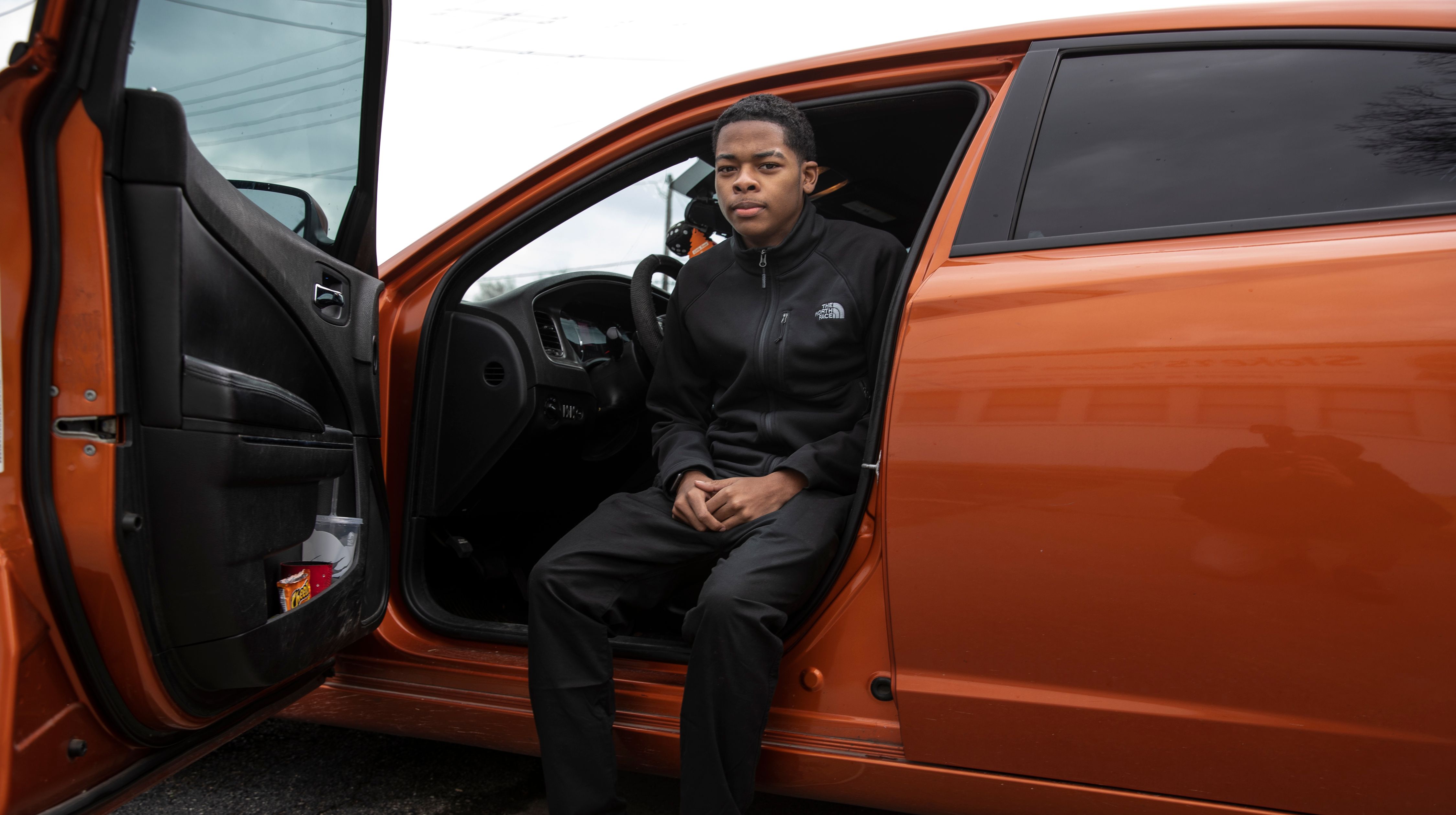Louisville Police Chief Steve Conrad will be asked to provide proof to city officials that traffic stops in high-crime neighborhoods reduce violence.
Civil rights leaders and several Metro Council members said Thursday they were enraged by a traffic stop in which a teenager was pulled from his car, frisked and handcuffed last summer after an alleged minor traffic violation.
Councilwoman Jessica Green, who chairs the council’s public safety committee, said she has asked Louisville Metro Police Chief Steve Conrad to appear before Metro Council to answer questions about the stop of Tae-Ahn Lea and the department’s tactic of “hyper-policing” to fight violent crime in the West End.
Green, D-District 1, said the stop described in a Courier Journal story and viewed a million times on YouTube shows how Louisville residents are “hunted down because of the color of their skin and where they live.”
Sadiqa Reynolds, president and CEO of the Louisville Urban League said when she watched the video with a group of black parents on spring break, “We found ourselves talking back to the video, holding back tears.”
“We understand the violence, we understand the drugs,” she said. “But one fact remains, many of our children are innocent.
“Police need to find a better way.”
Conrad has declined to comment on Lea’s stop, saying it is the subject of a pending internal-affairs investigation, although he has defended the department’s strategy of aggressive policing in high crime corridors. A police spokeswoman said the department has no plans on dropping the strategy.
Councilman David James, D-6th District, a former police officer, said he doesn’t blame the officers involved in the stop because “they are doing what they are told to do.”
But he said “stops like these are a bad idea. It is morally wrong. It is like going fishing with a big net. There are better ways to fight violence.”
Councilman Mark Fox, D-District 13, a former police major and district commander who retired three years ago after 34 years on the force, said stopping people for traffic violations in high-crime areas makes sense. He likened it to employing police radar in an area with a high accident rate.
But Fox said police, after checking Lea’s license and running his name for warrants, should not have forced him out of his car.
“I wouldn’t have done that,” he said.
Metro Councilman Bill Hollander, D-9th District, noted that both Conrad and Mayor Greg Fischer six months ago promised a broad, community-wide discussion about traffic stops, especially in west Louisville neighborhoods.
“The community is still waiting — and this story demonstrates again how much we need to have that discussion now,” he said.
“Routinely treating citizens in certain neighborhoods as suspects results in bad relationships and can result in violence and even death.”
More coverage: Study: Traffic stops don’t cut crime. But Louisville police say they work
Lea, who had no criminal record, was stopped Aug. 9, 2018, for making a wide turn. Police searched his car after a police canine supposedly alerted on contraband inside it, but no illegal drugs or weapons were found and the traffic citation was later dismissed when neither of the officers who wrote it showed up in court.
Raoul Cunningham, president of the NAACP Louisville chapter, said, “how this young man was handled was disturbing.”
“We support efforts to reduce violent crime, but what is the price citizens — primarily in west Louisville — must pay? How many stops have been made in other Louisville communities for an alleged illegal turn?”
Lea was stopped about a month before police pulled over the Rev. Kevin Cosby, senior pastor of St. Stephen Church, for an alleged traffic violation that he claimed was racially motivated.
Conrad announced last month that an investigation found Cosby was not racially profiled.
In an interview Thursday, Cosby, who is also president of historically black Simmons College of Kentucky, said watching the video of Lea’s stop was like “déjà vu.”
He said the stop and search showed “how an entire community is profiled” and that it “tragic how tax money is used to harass people.”
He also said it appeared that officers in the stop were trying to goad Lea and his mother, Tija Jackson, into doing something more extreme.
Green said no date has been set for Conrad’s appearance. She said he will be asked to provide proof that traffic stops in high crime neighborhoods reduce violence and that she and others will try to help the department understand the “history of disenfranchised people being targeted just because where they live.”
Green said that as a former prosecutor, public safety is her highest priority, but the “idea my two sons could and would be pulled over for no other reason than that they live in west Louisville” gives me “significant concern.”
Conrad has said intensive policing in the Russell neighborhood reduced homicides there, but a study released last year of more than 2 million traffic stops in Nashville found they did not reduce crime.
Fischer declined to comment on the stop, saying it was under investigation. FOP President Nic Jilek also wouldn’t comment.
Experts who viewed the video for the Courier Journal say that while the stop — other than the frisk — was legal, it was disproportionate to the alleged offense and an example of the kind of bad policing that undermines community trust.
“That young man and his family will forever have a bad taste towards police officers and the department,” James said.
Andrew Wolfson: 502-582-7189; [email protected]; Twitter: @adwolfson. Support strong local journalism by subscribing today: www.courier-journal.com/andreww
Source: Louisville police face heat after black teen’s traffic stop






